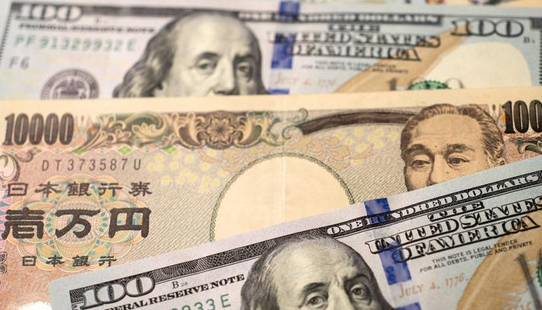TOKYO/WASHINGTON – The global financial landscape has been rocked by a series of unexpected events that have sent shockwaves through stock markets around the world. The United States, long considered a bastion of economic stability, is now grappling with the specter of a recession. This fear has been compounded by a significant correction in technology stocks, a sector that has been a major driver of market performance in recent years. Additionally, the cryptocurrency market, once hailed as a new frontier for investment, has not been spared, with Bitcoin experiencing heavy losses.
The ripple effects of these developments have been felt globally, with the Japanese stock market enduring a particularly brutal impact. On this fateful Monday morning, the Nikkei index plummeted by 4,451 points, closing at 31,458 points—a staggering 12.8 percent loss. This marked the largest daily loss since the infamous “Black Monday” in October 1987, when the index fell by 14.9 percent. The decline was not an isolated incident, as the Nikkei had already shed 5.8 percent the previous Friday.
The consequences of this financial upheaval are far-reaching. Japan’s economy, the third-largest in the world, is now facing a period of uncertainty and potential economic strain. The stock market crash could lead to a decrease in consumer confidence, reduced spending, and a slowdown in economic growth. This, in turn, could affect employment rates and the broader economic health of the nation.
China, with its intertwined economic relationship with Japan, may also feel the impact. A slowdown in Japan could result in reduced demand for Chinese exports, which would be a blow to China’s manufacturing and export-oriented industries. Furthermore, investor confidence in Chinese stocks, already shaken by previous market volatilities, could be further eroded, leading to capital outflows and increased market instability.
The Association of Southeast Asian Nations (ASEAN) countries, many of which have strong trade and investment links with both Japan and China, could experience a knock-on effect from the market turmoil. Reduced regional trade, fluctuations in currency values, and a potential decrease in foreign direct investment could hamper economic growth and development within the ASEAN bloc.
The European Union (EU), still recovering from the economic disruptions caused by the COVID-19 pandemic, could face additional challenges as a result of the stock market crash. European markets, which often mirror trends in the US and Asia, may see increased volatility and a potential pullback in investment. This could lead to slower economic recovery, increased unemployment, and fiscal pressures on EU member states.
Lastly, the United States, already contending with fears of a recession, could see these fears exacerbated by the global market downturn. The correction in tech stocks and the losses in cryptocurrency markets could dampen investment and consumer spending, key drivers of economic growth. Moreover, the interconnectedness of global markets means that financial instability abroad can quickly translate into economic challenges at home.
In conclusion, the recent stock market crash represents a significant economic event with the potential to affect economies worldwide. The immediate effects on Japan’s stock market are clear, but the longer-term implications for global economic stability and growth remain to be seen. Policymakers, investors, and businesses will need to navigate this period of uncertainty with caution and a keen eye on both domestic and international developments. The resilience of the global economy is being tested, and the actions taken in the coming months will be crucial in determining the potentially long path to recovery. (zai)

